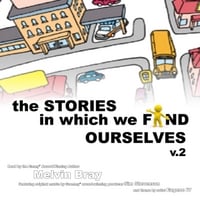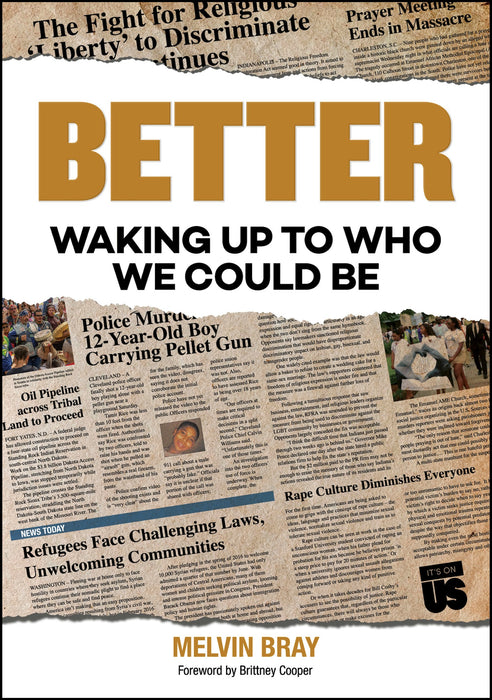The Making of Job—Episode 1
(from Job 1—a framing story)
There is an ancient allegory—perhaps the oldest story in the Bible—which explores the epic struggle between good and bad and humanity's efforts to tell the difference. Like any cherished old story, this story shaped the way those who told it understood the world around them. In fact, there are those who even believe that this story may hold the secret to help us properly value all other Bible stories. Let's tell it and see.
The story goes that one day God called a general assembly of all the sons and daughters of God. This assembly involved hearing reports of generative activities throughout the universe. Reports came in from all over. When it came time to hear the report from Earth, most members of the assembly expected only silence. It had been a long time since the assembly members had heard from her. Her guardian had long since turn his back on the assembly. As had become the custom, when Earth's name was called the guardians of the universe instinctively bowed their heads to whisper a blessing for her, when all of a sudden, the doors to the great chamber where the daughters and sons of God had gathered flew open and in strode Lucifer, the lost Guardian of Earth.
The Guardian assembly was flabbergasted. Who knew? No one had expected him to come. Despite old pangs of resentment, more than one tear was shed at the sight of their long-lost friend. As if nothing had changed in all the time Lucifer had been gone, God asked, "where have you been, our son?"
"Here and there throughout the earth," Lucifer answered with guarded frankness.
"So you've seen a thing or two," God responded, eyes searching, heart longing. "Have you learned anything?"
"Some."
"Some? Have you considered our son Job?"
"I've seen him."
"He's quite a man, wouldn't you say?"
"If you say so."
"What would you say?" God asked, eyes still searching, heart still longing.
"I say what I have always said," Lucifer replied volume rising, as he stood to his feet, looking deeply into all eyes assembled, "Job serves you for the same reason anyone else does: because you demand it, and you favor those who do."
"How dare you? You of all people should know that I make the sun to rise on the just and the unjust alike."
"Justice is in the eye of the beholder. Do you not protect him and his household and everything he has? You bless everything he does so that there is no end to his flocks and herds, food and land. I promise you this. If you were to take from him all he believes to be his, he would undoubtedly curse you."
"So you think?"
"So I know."
"So be it then," God decreed. Then to the members of the assembly she spoke, while also keeping a steady eye on Lucifer himself, "A wager has been brought, a challenge made. Your missing brother still believes that loyalty could never be an act of love but is always an act of self-interest or capitulation. What do you think?"
"He's a liar! He's a cheat! He's a usurper!" the crowd roared back.
"He's also your brother," she protested, and then came silence. "We will give him a fair hearing, for that is what love does." Then to Lucifer she said, "All right then. Take from Job what you will, but do not touch his health. Then we shall see the source of his loyalty to me."
So Lucifer left the assembly in the same strut of arrogance with which he had come. His followers met him upon his return. "The die is cast," he said to his legions. "We have been given carte blanche to wreak havoc in the life of Job. We may do what we want, but we cannot touch his body. So do your worst, my hoard. Go forth and take from him all he holds dear. Show him how fickle life can be."
So in that day, before he even knew it, Job from the land of Uz had lost everything he thought his own.
Now Job had a lot to lose. He was rich. He had three daughters and seven sons. In addition, he had seven thousand sheep, three thousand camels, five hundred yoke of oxen, five hundred donkeys, and very, very many employees. Now that may not sound like a lot by today's standards, but if we adjust for inflation and the difference between our time and the time when this story was first told, that would make him a multi-billionaire, maybe even the world's first trillionaire. He was big-time.
But that wasn't all we know about him. In fact, the most important thing about Job was the thing that was up for debate between God and Lucifer. You see, the word was that Job was a genuinely good guy. Not just 'good guy,' as in people liked him, but genuinely good, as in "blameless and upright, one who... [had the utmost respect for] God and turned away from evil." That's quite a reputation. Not the kind of thing that can be said of everybody. As the wise ones say, "A good name is to be chosen rather than great riches, and favor is better than silver or gold" (Prov. 22:1). They also say, "The days of a good life are numbered, but a good name lasts for ever" (Eccl 41:14). Again, Job had a lot to lose.
The way the story goes, Job's children used to take turns throwing these huge parties at each other's house for days at a time. They would invite people from miles around. And when one was over, Job would always gather his children and their families and employees and his employees and their families together and recount for them their many blessings, reminding them of their particular responsibilities as people who had been blessed with so much. Then, as was the custom in those days, he would sacrifice burnt offerings as prayers on behalf of each of them.
One day, while Job was at home and his sons and daughters were off at the oldest brother's house, eating and drinking wine, the Bible tells us, "a messenger came to Job and said, ‘The oxen were ploughing and the donkeys were feeding beside them, and the Sabeans fell on them and carried them off, and killed the servants with the edge of the sword; I alone have escaped to tell you.’ While the messenger was still speaking, another came and said, ‘The fire of God fell from heaven and burned up the sheep and the servants, and consumed them; I alone have escaped to tell you.’ While that messenger was still speaking, another came and said, ‘The Chaldeans formed three columns, made a raid on the camels and carried them off, and killed the servants with the edge of the sword; I alone have escaped to tell you.’ While he was still speaking, another came and said, ‘Your sons and daughters were eating and drinking wine in their eldest brother’s house, and suddenly a great wind came across the desert, struck the four corners of the house, and it fell on the young people, and they are dead; I alone have escaped to tell you.’"
Job was floored. He couldn't hear anymore. He stumbled aimlessly from the yard, into his house. Then like a man possessed, he frantically searched for a knife and a bowl. He ran outside, filled the bowl with water, sharpened the blade of the knife to a fine point, then haltingly, jaggedly, looking down at his reflection in the water, he began cutting off his hair. Then he tore his robe from his body, which is what people did in those days to show their frustration and complete helplessness, and he collapsed on the ground. It is at this point in the story that scripture records one of the most beautiful and heartfelt yet ironic laments that could be uttered. Job worshipped by saying, "‘Naked I came from my mother’s womb, and naked shall I return there; the Lord gave, and the Lord has taken away; blessed be the name of the Lord.’"
"In all this Job did not sin or charge God with wrongdoing."










No comments:
Post a Comment